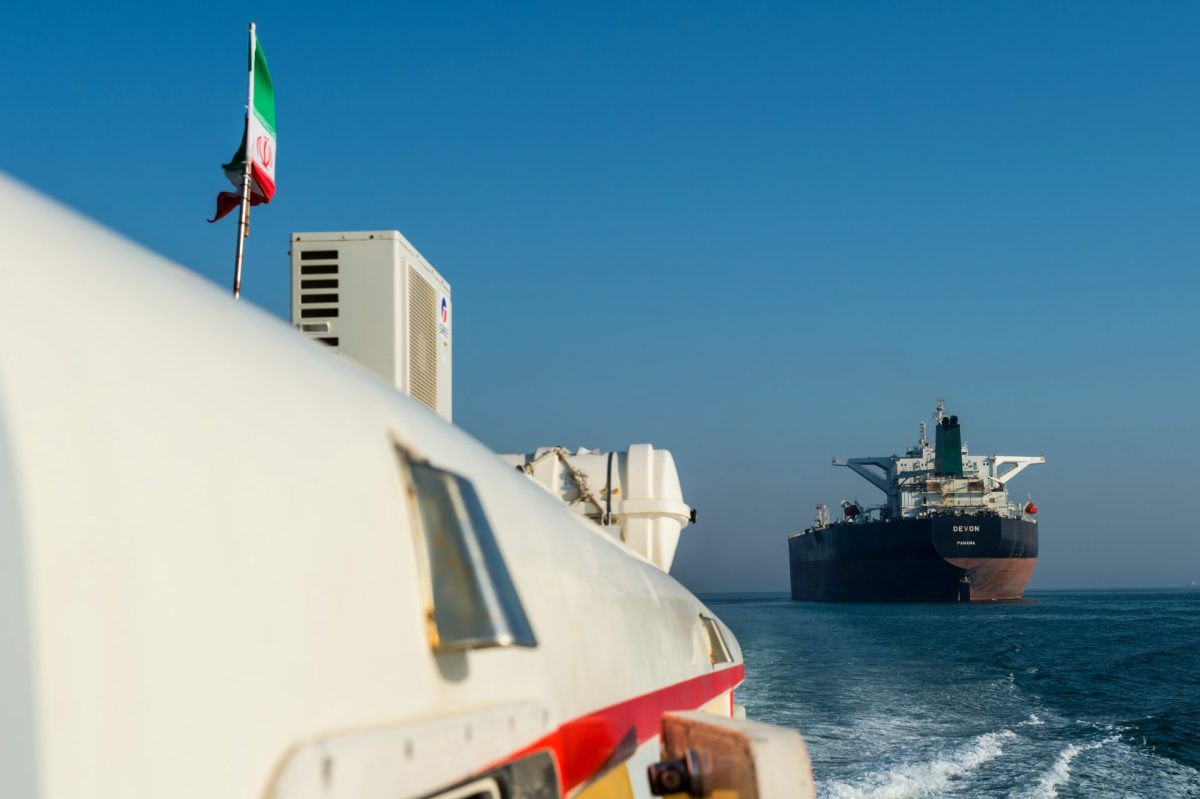Analysts said the higher exports appear to be the result of Iran’s success in evading US sanctions and Washington’s discretion in enforcing them as the two countries seek better relations.
The United States has sought to limit Iran’s oil exports since Donald Trump exited a 2015 nuclear accord in 2018 and re-imposed sanctions aimed at curbing revenues to Iran’s government. But the exports have risen during President Joe Biden’s term, with China a top buyer, according to the industry trackers.
SVB International, a consultant, estimates Iran’s oil production increased in August to 3.15 million barrels per day (bpd), the highest since 2018, with crude oil and condensate exports at just under 2 million bpd.
“Iran is on the path to recover its pre-sanctions oil production,” said SVB’s Sara Vakhshouri.
Three other trackers contacted by Reuters had similar estimates.
The United States is in talks with Iran over a potential agreement in which five US citizens would be released by Iran and $6 billion in Iranian funds in South Korea would be unfrozen. White House National Security Adviser Jake Sullivan has declined to offer a timeline on a deal.
High oil prices are also a political risk for Biden as the November, 2024 elections approach. More supply on the global market could keep prices down.
“It seems to be happening,” Kevin Book, an analyst at ClearView Energy Partners, stated about what he calls enforcement discretion of US sanctions.
A US State Department spokesperson said the administration continues to enforce sanctions on Iran and that oil export figures fluctuate over time and according to methodology.
“We also regularly engage with other countries to strongly discourage them from taking steps that contravene sanctions on Iran,” the spokesperson added.
Iran has for years evaded oil sanctions through measures such as ship-to-ship transfers and “spoofing” – or manipulating GPS transponders so that ships show up in different positions – and the country is only getting better at those tactics, analysts said.
Ben Cahill, an analyst at the Center for Strategic and International Studies think tank, stated Iran has also heavily discounted its oil shipments to China, something that has helped encourage buyers to step up purchases.
“It’s no surprise – if you discount your oil that boosts demand for it. I also think it’s just hard to stop this trade,” he added.
Iranian oil also moves to Syria and Venezuela, according to analysts and shipping data.
A production rate of 3.15 million bpd would be the highest figure for Iran since 2018, according to figures from the Organization of the Petroleum Exporting Countries (OPEC), of which Iran is a member.
TankerTrackers.com, which assesses oil shipments, estimates Iran’s crude and condensate exports averaged 1.92 million bpd in the first 27 days of August, of which the crude portion was 1.77 million bpd, in figures provided to Reuters.
The August oil exports would be the highest monthly rate this year, according to the company’s figures.
Another tanker-tracking firm that declined to be named said August crude exports were above 1.5 million bpd.
Kpler, a provider of flows data, expects August crude exports to average about 1.2 million bpd, down from a 2018 high of 1.54 million bpd reached in May. The company often revises up its figures.
There are no official figures for Iranian exports. Tanker-tracking companies use data from satellites and port loading to monitor flows.
Iran has said it expects higher supply in the near term. Iran’s oil minister was quoted by state media as saying crude output will reach 3.4 million bpd by the end of September.
The rise from Iran comes as OPEC+, which includes OPEC, Russia and others, is cutting output to support the oil market, where expectations that economic weakness will dent demand have weighed on prices.
Vakhshouri said a lack of transparency by the Biden administration over Iran oil policy has consequences for global energy security particularly as some OPEC+ members cut output.
